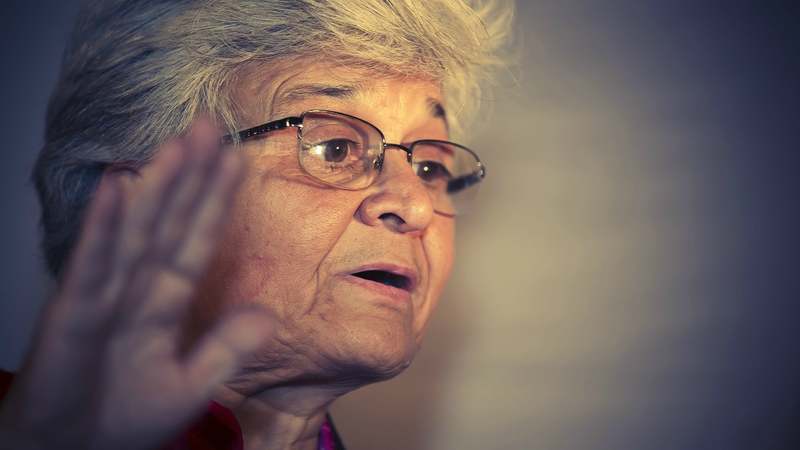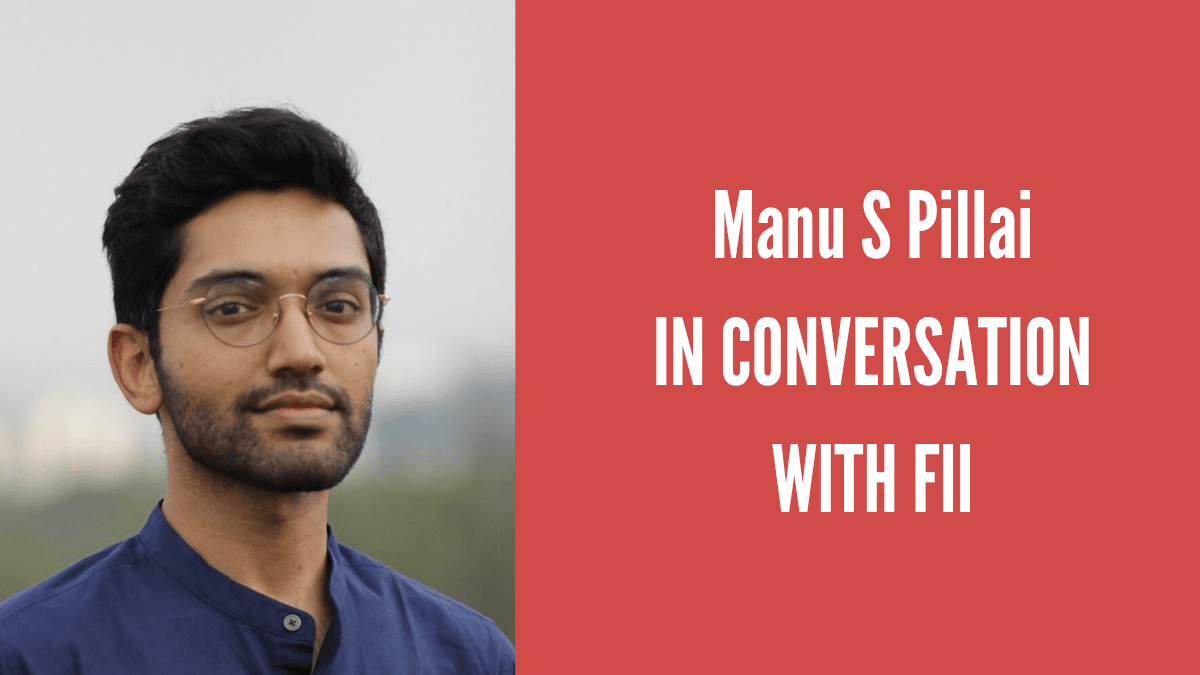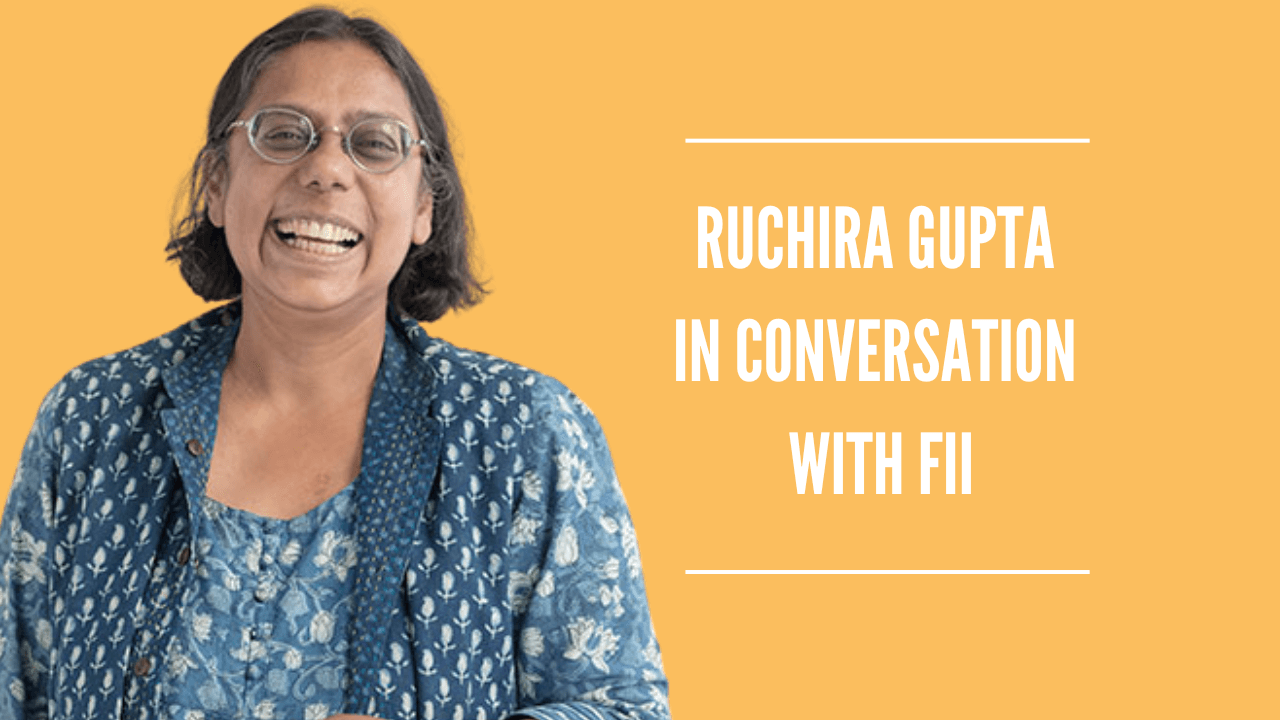Kamla Bhasin is perhaps India’s most renowned developmental feminist activist, social scientist, poet and author. She has worked for 48 years in fields of women’s rights, human development, peace and democracy. She currently works with Sangat, a burgeoning network of South Asian feminists and is also the South Asia coordinator for the One Billion Rising campaign.
We had the privilege of speaking with her about her immense body of work in this area.
Mini Saxena: What spurred you into developmental feminist work? Can you tell us a little bit about how you fell into it and your beginnings in this field?
Kamla Bhasin: I grew up in small towns in rural Rajasthan and studied at government schools at a time soon after independence. I completed my studies in India and spent two years in Germany, after which I decided to go back and work in rural areas.
So I resigned from my fancy German government job in 1970 and came back to India. I decided to work for Seva Mandir in Udaipur as a development worker and activist and stayed there for four years. My first concerns were poverty and illiteracy. Later on, I worked for many years on water development.
In around 1974, an organization invited me to a conference on women in India. There were some very eminent trade union activists and other women at this conference and papers were presented. I was asked to edit those papers and bring them out in a book. I went to the Nairobi UN conference in 1985 and the Beijing conference in 1995. I edited the book called Role of Women in India.
An American woman came to Seva Mandir, Udaipur. She liked me and she gifted me one year’s subscription of a very famous American feminist magazine. Until then, I hadn’t even heard the word “feminism”.
But I’m not a reader and didn’t read very much. I think in the ’80s I heard about Simone de Beauvoir and read her a little bit, though it’s difficult to read that big book! But I started thinking more and more and writing more about it.
In 1975, the UN asked me to work with them. There, my main work was organizing capacity-building programs. After doing three or four workshops with men and women, I started focusing on doing workshops with women. From 1970 to 2002, I worked with organizations which worked on development and poverty issues. Within that, I brought in my feminism.
In 1979, for the first time, I came to Delhi to live because I started working with the UN in Delhi. This is where I met other feminists working here. The Mathura rape case happened around that time and I worked on that. Dowry deaths were taking place.
We did a play here called Om Swaha, which became very popular and famous later on. I was there from day one of Om Swaha, as one of the actors. In around 1977 or 1978, I had started writing songs on women. So for example, my song ‘tod tod ke bandhanon ko’, I wrote in 1978, in a workshop in Bangladesh.
I had known Abha (Bhaiya) in college in 1961. By then, she had also moved to Delhi. So her, me, Gauri Choudhury, Amrita Chhacchi, Sheba Chhacchi, Urvashi Butalia, Gita Sahgal (who worked with Amnesty International) and Maya Rao (the actor), we all worked together. Around that time, Saheli was born. In around 1979 or 1980, along with feminists like Abha and the rest, I started organizing short ten-day workshops on feminism in India for women. We organized several from 1979 onward.
In around 1984, seven of us started Jagori (though I have never worked for Jagori full-time or been a leader with them, I continued to work with the UN; my Hindi books, music, songs and series of posters have been released by them). I realized that if we want to work on the issues of class and gender (and caste), then the written word is not enough.
That’s why my focus has always been on engagement through Q&A booklets, songs and visual materials like posters and banners. When my children were born, I started writing songs for them and they were naturally feminist rhymes, which got published by UNICEF and later by Jagori.
I am still in the UN and work with them (so some people may not even accept me as a ‘real’ feminist!); everything else comprises things I do on the side.
MS: Can you tell us about the beginnings of Jagori? What were some of the struggles you encountered and some of the achievements in the early days? Do you think the feminist activist organizational landscape has changed significantly since then?
KB: Saheli was doing its work but many of us felt that we needed an organization that worked full-time. We were ready to become an organization from a group, with some people working full-time. We even compromised and started taking funding. This was a huge debate, between the funded and non-funded feminists. But we felt we needed people who would give their time and we needed to do workshops and training, etc.
Jagori is called a women’s resource and training center, so it involves publishing books, holding workshops and through the workshops, networking with different NGOs and groups. Jagori participates in all the campaigns. For the first ten years of Jagori, Abha was the main person running the organization.
We worked out of Abha’s flat, a two-room flat in South Extension. It was many years later that we got a separate office! We got some financial support and people to work with us. It was an exciting time (though there has never been a dearth of issues or campaigns or people willing to work with us).
At that time, we though that it should be a non-hierarchical feminist organization, there shouldn’t be too many inequalities. I think those things have now disappeared, with funding, donors, consultants coming in and having to buy expertise at market value. But at that time, those were the important principles we followed.
As soon as you start depending on funds, conditionalities come in with donors. They need reports, project proposals, evaluations, monitoring, etc. With NGO-isation, some bureaucratization is bound to happen. It was in the 1980s that “gender” started. Until 1986 or 87, I had never heard of the word gender or used it.
I was sceptical of the concept in the beginning. Along with gender, came gender studies, and gender experts coming out of universities. Until then, gender experts didn’t come from universities; they grew from campaigns and the grassroots. None of us knew the theories, we just did the work! There were tensions between academic feminists and activist feminists.
Around this time, the Indian Association of Women’s Studies (IAWS) came up. I was active with them from the beginning. For two years, I was their General Secretary. They played an absolutely amazing role in networking between feminist academics and researchers and feminist activists.
I organized one of their big national conferences which took place in Jaipur. I also suggested we involve feminist activists or scholars of neighbouring countries as well. We started a whole section of South Asian feminists and invited feminists from neighbouring countries to the IAWS as well.
MS: You then went on to form Sangat. Why is it important for you to have a South Asian feminist consciousness and network?
KB: Every region requires a feminist consciousness. But I am not a great nationalist. I don’t believe in narrow nationalities. Perhaps this is linked to my own geography. I was born in Pakistan and all my life, even in India, when my father worked in the villages of Rajasthan, our closest friends, by chance, were always Muslims and Sikhs.
From the beginning, I felt that working and living peacefully with neighbours was very important. When I got into development work and saw that even for development issues, people were going to Western countries to study! I didn’t understand what we could learn in England or America or Germany (where I went) if our work was in rural areas. But I felt that I could learn from Pakistan if they had an interesting project because we had similar conditions.
People who came out of the Partition: we saw the devastation. Poor countries like ours can really not afford wars and huge armies and spending 20-40% of our budgets on so-called defence. Later on, we also saw the devastation of the Indo-Pak war in 1965, the Pakistan-Bangladesh war in which India was a full partner, in 1971.
I always felt that development is very difficult in war-like situations and it is very important that people-to-people contact across borders should be created between like-minded feminists, human rights activists, peace activists, etc. Since 1975, until today, I have identified people working on these issues, bringing them together for courses and networking between them.
Also Read: Kamla Bhasin: On Feminism in Pakistan and India
This is the people-to-people contact which I wanted; I was very lucky that the UN came into my life. I never applied for any job; they met me at a conference and felt I could do good and asked me to join them. I did, never realizing how long it would continue! Now it has been 27 years. But I did exactly the same work I am doing today.
For me, peace, human rights, development, feminism – they are not separate issues. They are different sides of the same dream, and many of us have always worked on all these issues together.
MS: How do you see the link between patriarchy and capitalism?
KB: It was after private property that women had to be controlled because men did not know who their children were and if they wanted their private property to go to their children, they had to create fences around women. The more propertied you are, the more you have to control women. Capitalism and patriarchy have had a dual relationship because capitalism needs cheap labour and women are the cheapest labour (though they are entitled a household wage).
But it has also given women the opportunity to come out of their homes. Very few, and only in the formal sector (because until a few years ago, 90% women of were in the informal sector), but it gave some jobs to some women and gave them opportunities to grow. But capitalism also needs markets. They use war for their benefit; the war industry is among the biggest industries in the world.
Capitalism has also used all the patriarchal notions of marketing, like pornography: male sexuality over female sexuality. The need for female flesh markets turns into trafficking (informal or otherwise), which is a million-dollar industry today. The cosmetic industry focuses on women’s bodies and women’s beauty, again a billion-dollar industry.
As soon as Rajiv Gandhi opened the Indian economy, one after the other, four to five women became ‘Ms World’, ‘Ms Universe’, etc. Before this, not a single Indian woman had these titles. There were feminists in Miranda House etc. who had banned beauty competitions; they didn’t exist in Indian colleges.
Even the toy industry profits: Barbie dolls for girls and Superman or Spiderman for boys. Another huge billion-dollar industry is the cinema and TV industry, also making use of patriarchy.
So I agree with the socialist feminists in the past, that our struggle has to be against class and patriarchy together (in India, also caste and in the US, race) and we cannot get rid of patriarchy without getting rid of the economic paradigm. These things look impossible at the moment.
Even religious customs and festivals like Christmas have been used for capitalism. Similarly, in India and in Nepal, you see the fasts at Karva Chauth. Indian marriages are a huge market and Indian weddings take place in a very patriarchal manner. Capitalism is everywhere.
MS: What methodology do you use to spread your message and work to those who may not believe in gender equality or gender justice? What kinds of activities do you carry out?
KB: I resigned from the UN because of a sexist and racist head of that agency. But even while working in the UN, it was not the UN who supported me but NGO donors. These donors said we should do this work from outside, once I left.
From 1975 until 2018, my main work has been courses and workshops. I would say I do at least 15-20 workshops a year, including the 4 long courses Sangat does and other 3-4 day workshops.
You sit with people and talk to them and listen to them and give them these tools of analysis for patriarchy and gender, which we ask them to apply to their own lives. Out of these, come networks. Through these networks, we disseminate our booklets and material.
It is through this network that my books have been translated into 25-30 languages. For example, a woman from Sudan and a woman from Turkey came to our courses. In the next 3 years, they had translated 4 of my books into Turkish and Arabic (in Sudan).
The other method is something which brings emotions, intellect and body together: songs. I personally think it is one of my biggest contributions. Additionally, we use banners and posters. Songs and slogans link our bodies and minds and hearts to reach out to people; I have found these very effective.
MS: Why is the One Billion Rising (OBR) campaign significant to you?
KB: The campaign has been amazing. We have been working against violence since the late 1970s. But OBR did something special; its slogan is Strike! Dance! Rise! The word “dance” emphasized globally that we are not coming into this work as victims, we are coming into it as survivors – dancing and singing.
This, I think, was very attractive for young people. Maybe before OBR, we were not doing our work right for young people, which is possible. But OBR helped us get to young people, to colleges. For example, in Delhi, about 40 organizations have been participating; they reached out to their own areas. Because of Sangat’s network, we have done the same in every country.
Earlier, there were other campaigns like the 16 Days Campaign, 8 March, etc. OBR has an element of joy; linking it to 14 February and giving it the slogan of ‘no to violence, yes to love’. Our slogan is not the love of power but the power of love.
In 1983, we held a seven-week long course, during which 10 days were for theatre, singing and poster-making. This means that in my work, I always have to be interacting with artists. Art and creativity have always been a part of this work. Emotion has been in my work always.
MS: What is the best way to speak or engage with those who do not believe in gender equality or gender justice?
KB: I really feel there is no other way than honest dialogue, talking about people’s real lives to them. First of all, we must explain to them that feminism is not anti-men, it’s not anti-culture, it’s not anti-religion. It’s only anti-inequality and injustice.
If there are parts of religion which are unequal and unjust, it has to be against those. If there are things in our culture which are unequal and unjust, it has to be against those. We are not against family, we need the family. But if the family is based on patriarchal norms, we are against it. Secondly, since we all have constitutions which talk about gender equality, we are following the constitution.
Finally, we must talk to them and explain that if there was more gender equality, the family will be a stronger unit, marriage will be a more beautiful unit, brothers will be freer. They only see that men will have to do household work and look after younger siblings, but they don’t see that then they could do music, become poets, dance, not work all the time all their lives.
I suppose we feminists will have to become a little more humble, more gentle and soft in the way we talk. How long have we taken to get here? Am I, after those 47 years, fully a feminist? I have always said feminism is a journey. If we link it to all other hierarchies of caste, class, race, is it ever possible that I would be completely de-classed? Not in my life, for God’s sake!
At times, I do feel that we are making huge headway. Every college today has gender and development cells. But because of three things: capitalist patriarchy, right-wing politics (which is completely linked to capitalism and globalization) and religious fundamentalism (which is also linked), we are falling behind.
So at the root of it, I see this greed-based profit-based economic structure, which is dividing us at all levels. Nobody fights it because everybody has accepted that there is no alternative.
MS: What is your message to young feminists?
KB: I don’t give messages! This entire talk is a message, but I would say make friends and love each other.
Also Read: Meet Dr Rani Bang: On Improving Health Care For Rural Women
Featured Image Credit: Dawn
About the author(s)
Mini Saxena is a lawyer from Delhi. When she's not ranting about feminism, you can find her travelling solo, dancing like no one's watching, or reading.




